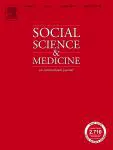| Titre : | Modelling possible causality in the associations between unemployment, cannabis use, and alcohol misuse (2017) |
| Auteurs : | J. M. RODEN ; J. O. LEE ; L. J. HORWOOD ; C. V. GREST ; G. F. H. MCLEOD |
| Type de document : | Article : Périodique |
| Dans : | Social Science and Medicine (Vol.175, February 2017) |
| Article en page(s) : | 127-134 |
| Langues: | Anglais |
| Discipline : | EPI (Epidémiologie / Epidemiology) |
| Mots-clés : |
Thésaurus géographique NOUVELLE ZELANDEThésaurus mots-clés ALCOOL ; CANNABIS ; CHOMAGE ; ETUDE LONGITUDINALE ; MODELE STATISTIQUE |
| Résumé : |
Background: There has been considerable interest in the extent to which substance use and unemployment may be related, particularly the causal pathways that may be involved in these associations. It has been argued that these associations may reflect social causation, in which unemployment influences substance use, or that they may reflect social selection, in which substance use increases the risk of becoming and remaining unemployed. The present study sought to test these competing explanations.
Methods: Data from the Christchurch Health and Development Study, featuring a longitudinal birth cohort, were used to model the associations between unemployment and both cannabis and alcohol. Data on patterns of unemployment, involvement with cannabis, and symptoms of alcohol use disorder were examined from ages 18-35 years. The associations between unemployment and both cannabis dependence and alcohol use disorder (AUD) were modelled using conditional fixed-effects regression models, augmented by time-dynamic covariate factors. Results: The analyses showed evidence of possible reciprocal causal processes in the association between unemployment and cannabis dependence, in which unemployment of at least three months' duration significantly (p Conclusions: The present findings support both social causation and social selection arguments, by indicating that unemployment plays a causal role in substance misuse, and that it is also likely that a reverse causal process whereby substance misuse increases the risk of unemployment. (C) 2017 Elsevier Ltd. All rights reserved. Highlights: We aimed to examine possible causal pathways between unemployment and substance use. Unemployment, cannabis dependence, and alcohol use disorder associations modelled. Data were from a birth cohort to age 35 and controlled for nonobserved fixed effects. The results showed evidence of reciprocal causal effects. |
| Domaine : | Alcool / Alcohol ; Drogues illicites / Illicit drugs |
| Affiliation : | Christchurch Health and Development Study, Department of Psychological Medicine, University of Otago, Christchurch, New Zealand |
 Accueil
Accueil



